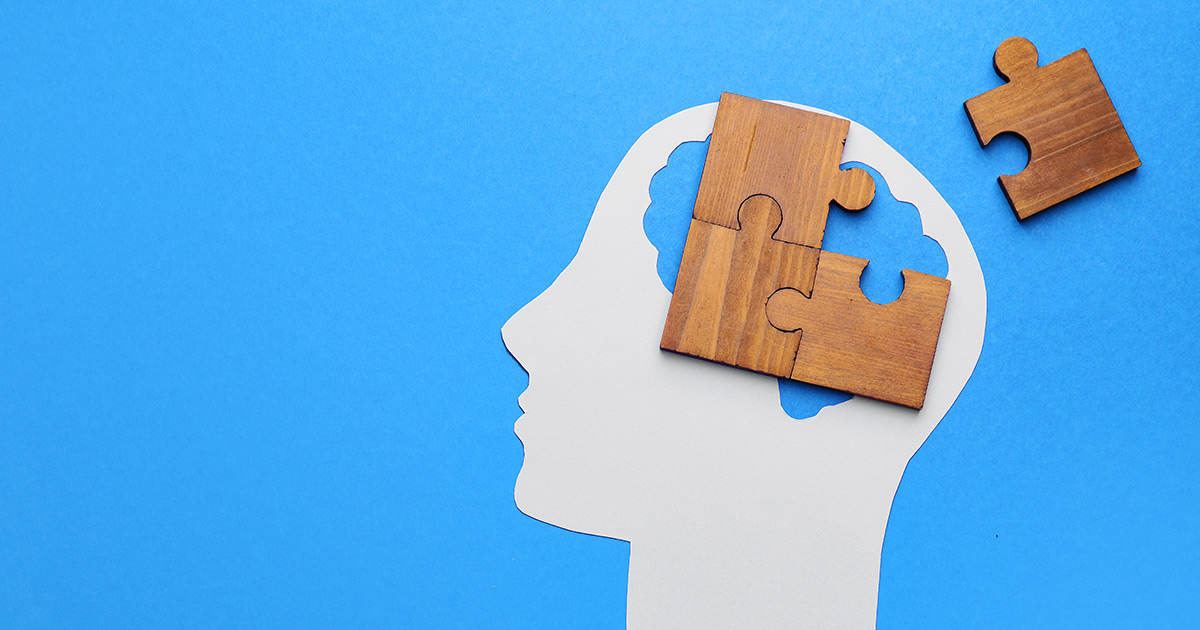
Normal ageing is associated with a decline in cognitive functions. The prevalence of dementia increases with age. It mainly affects older people after the age of 65 years. Dementia is a syndrome due to a disease of the brain, usually chronic, distinguished by a progressive decline in cognitive function, including language abilities, memory, learning, reasoning, comprehension, and judgement. There are many different types of dementia, each with its symptoms and causes. It is not a specific disease but rather a group of symptoms that can result from several different underlying conditions. Dementia can range from mild to severe, affecting other people differently.
Some of the symptoms of dementia can include memory loss, especially for recent events, difficulty with communication and language, changes in mood and behaviour, and difficulty with daily tasks, such as bathing and dressing. Other indications include difficulty with spatial awareness and coordination, loss of interest in previously enjoyed activities, confusion, and disorientation, even in familiar surroundings. The causes of dementia can vary depending on the type. Some common causes include:
Alzheimer’s Disease is the most common type of dementia, accounting for 60-80% of all cases. It is a progressive brain and degenerative brain disorder that affects older adults. It is caused by the progressive death of brain cells, leading to symptoms such as memory loss, confusion, and difficulty with daily tasks.
Vascular Dementia: This is a type of dementia caused by damage to the blood vessels that supply blood to the brain, often due to a stroke. This damage can result in reduced blood flow and oxygen to the brain, leading to brain cell death and the development of symptoms such as memory loss, difficulty with thinking and problem-solving, and changes in mood and behaviour. It is the second most common cause of dementia after Alzheimer’s Disease and can occur in conjunction with other types of dementia, such as Alzheimer’s. Symptoms may include difficulty with coordination, trouble with planning and decision-making, and changes in personality and mood. Risk factors for Vascular Dementia include high blood pressure, smoking, heart disease, stroke, and diabetes.
Lewy body Dementia: This type of dementia is caused by the presence of abnormal protein deposits in the brain, known as Lewy bodies. It often includes symptoms such as hallucinations, Parkinson’s-like movement problems, and fluctuations in cognitive abilities.
Frontotemporal Dementia: This type of dementia is caused by the degeneration of the frontal and temporal lobes of the brain. It can lead to changes in behaviour and personality, as well as difficulty with language and decision-making.
Huntington’s Disease: This is a rare genetic disorder that causes the degeneration of nerve cells in the brain, leading to symptoms such as movement problems, cognitive decline, and psychiatric symptoms.
Creutzfeldt-Jakob Disease: This is a rare, rapidly progressive dementia caused by the degeneration of the brain. Its symptoms include memory loss, blindness, muscle twitching, and problems with coordination and balance.
To correctly identify the type of dementia, a thorough evaluation by a healthcare professional is necessary. This may include a physical examination, laboratory tests, and neuropsychological testing. In addition, the healthcare professional may conduct a detailed interview with the patient and their family members to gather information about the patient’s medical history and symptoms. It’s important to note that many people have a combination of different types of dementia. And the symptoms can overlap and change over time. So, a definitive diagnosis can be challenging to make.
Once the type of dementia is identified, the healthcare professional can recommend appropriate treatment and support options to help manage the patient’s symptoms and improve their quality of life. It’s important to note that some types of dementia can be treated with medication or other therapies, while others have no cure. Early diagnosis and treatment can help improve the quality of life for those with dementia and slow the progression of the disease. It’s important to note that dementia is not a normal part of ageing and that early diagnosis and treatment can help improve the quality of life for those with dementia and slow the progression of the disease. Caregivers play a vital role in providing support and assistance to those with dementia, and resources such as support groups and respite care can help alleviate the burden of caregiving.
Kancare Senior care is one of the top Assisted living Centres in Ernakulam to provide complete elder care services with the best professional team. Kancare was born out of a noble thought to provide meaningful assisted living support for the aged. Kancare also takes the responsibility to bring awareness among the children to educate them that aging is not a disease and how they can support their elders during this time. Kancare provides the best quality of life to those who are finding it difficult to lead a normal life because of health issues. The atmosphere and the trained staff will make the inmates feel at home in Kancare and give them a positive attitude toward their life.
Click here if you want to know more about the service Kancare Senior Care offers to you.
Elder Care Services, Home care service, Memory Care, neurological-rehabilitation, palliative Care, hospice-care, Transition Care, Respite Care, Continuum Care, Dementia Care, Alzeimers, Stroke Care, Parkinsonism, Motor Neuron disease.
